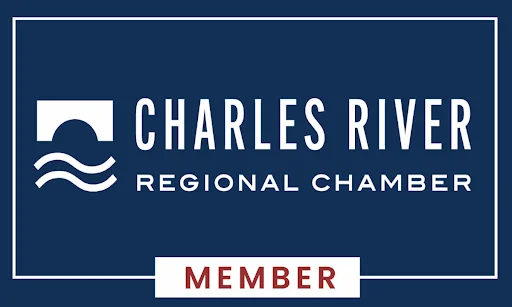Clinically Reviewed by Dr. Kate Smith
What Is Cognitive Behavioral Therapy (CBT)?
Cognitive Behavioral Therapy is a foundational element of the treatment programs at Greater Boston Behavioral Health. It is an evidence-based approach used to address a broad range of mental health conditions. Initially developed to help individuals reframe negative thinking patterns, CBT has proven effective in treating a wide array of issues, including anxiety, depression, and trauma-related disorders.
At Greater Boston Behavioral Health, our specialized CBT program is designed to help clients identify and challenge harmful thought patterns, replace them with healthier perspectives, and develop practical coping skills. This empowers individuals to make better decisions, improve emotional regulation, and manage stressful situations more effectively. By incorporating CBT into treatment, we help clients build a strong foundation for long-term mental health stability and emotional well-being.
Want to Change Unhelpful Patterns?
CBT can help you shift negative thinking and build healthier habits.
Let’s talk about how this evidence-based therapy can support your goals.
Benefits of Cognitive Behavioral Therapy
Cognitive Behavioral Therapy offers numerous advantages for individuals experiencing mental health concerns:
- Cognitive Restructuring: CBT helps clients identify and challenge negative thinking patterns and replace them with healthier, more constructive thoughts. This shift supports better decision-making and reduces harmful behaviors.
- Focused Problem-Solving: CBT teaches clients to break down overwhelming problems into manageable steps, promoting action-based strategies for coping with anxiety, depression, and trauma.
- Emotional Regulation: By addressing distorted thought patterns, CBT helps clients regulate their emotions more effectively. This approach is especially helpful for individuals with complex or overlapping mental health needs.
- Increased Self-Efficacy: As clients develop new skills through CBT, they build confidence in their ability to manage stress, resist harmful behaviors, and make positive changes in their lives.
CBT provides a structured framework for addressing both psychological and behavioral patterns, empowering individuals to support long-term emotional well-being.
CBT Facts & Statistics
Coelho, Steph. “Therapy Statistics in 2024.” HelpGuide Handbook, 20 May 2024, www.helpguide.org/handbook/online-therapy/therapy-statistics.
University of Oxford. “Study Finds CBT Offers Long-Term Benefits for People with Depression — Department of Psychiatry.” Www.psych.ox.ac.uk, 7 Jan. 2016, www.psych.ox.ac.uk/news/study-finds-cbt-offers-long-term-benefits-for-people-with-depression#:~:text=Over%20the%20course%20of%2046.
pun, Janet. “What Is Online Cognitive Behavioral Therapy (CBT)? – Starling Minds.” Starling Minds, 8 Jan. 2019, www.starlingminds.com/what-is-online-cognitive-behavioral-therapy-cbt-starling-minds/.
Cognitive Behavioral Therapy Los Angeles. “How Effective Is Cognitive Behavioral Therapy.” Cognitive Behavioral Therapy Los Angeles, 2020, cogbtherapy.com/how-effective-is-cbt-compared-to-other-treatments.
“5 Statistics of CBT for Anxiety.” Www.rootsmentalwellness.com, www .rootsmentalwellness.com/blogs/5-statistics-of-cbt-for-anxiety.
Finding CBT Treatment near Me
Greater Boston Behavioral Health provides CBT treatment for individuals seeking help dealing with mental health issues in a supportive, affirming environment. Our goal is to help clients manage their symptoms and improve their overall well-being. To learn more about our CBT services, please call us at (888)278-0716 or visit our location in Needham, MA.
- Greater Boston Behavioral Health: 322 Reservoir Street Needham, MA 02494
Accreditations You Can Trust
Trusted, Recognized, and Backed by Leading Organizations
These badges reflect our standing with respected local and national groups — including Psychology Today, Charles River Recovery, and the Massachusetts Department of Public Health. Click below to see what each badge means.
The Joint Commission
Considered the gold standard in healthcare quality, The Joint Commission evaluates programs on safety, ethics, and clinical excellence. Their seal means our treatment meets some of the most rigorous national standards in the field.
Massachusetts Department of Public Health
DPH approval confirms that our programs follow all state requirements for safety, staffing, licensing, and oversight. In simple terms: the state reviews our operations and verifies that we meet the standards needed to provide trustworthy care.
Psychology Today Verified
Being verified on Psychology Today shows that our clinicians are licensed, professionally credentialed, and approved by one of the most widely used mental health directories in the country.
Charles River Recovery Partnership
This partnership connects us with another respected Massachusetts treatment provider, allowing clients to move safely between levels of care and ensuring continuity, collaboration, and high-quality support.
National Quality Seal (Gold Emblem)
This represents our commitment to following recognized best practices in behavioral health. It signals that we go beyond the basics — focusing on safe, ethical, evidence-based care at every step.
Conditions We Treat with CBT at Greater Boston Behavioral Health
Cognitive Behavioral Therapy is a cornerstone of treatment at Greater Boston Behavioral Health, addressing a wide range of mental health challenges. The conditions we treat using CBT include:
- Anxiety Disorders: CBT teaches clients how to manage and reduce anxiety by challenging irrational fears, learning relaxation techniques, and developing healthier thinking patterns to face stress more effectively.
- Depression: Through CBT, clients can identify and reframe negative thought patterns that fuel depression, helping them engage in positive activities and behaviors that improve mood and well-being.
- Trauma & PTSD: CBT aids trauma survivors in processing traumatic experiences by reshaping their thoughts around the trauma, reducing the emotional impact and fostering resilience.
- Chronic Pain: CBT helps individuals manage the psychological toll of chronic pain by teaching them to reframe their perception of pain and develop effective coping strategies to improve their quality of life.
- Obsessive-Compulsive Disorder (OCD): CBT empowers clients to challenge obsessive thoughts and manage compulsive behaviors, reducing the power of OCD over their daily routines.
The CBT program at Greater Boston Behavioral Health offers clients practical tools to address these conditions by focusing on reshaping thoughts, improving coping mechanisms, and enhancing emotional regulation.
Treatment Programs with Cognitive Behavioral Therapy
At Greater Boston Behavioral Health, we incorporate Cognitive Behavioral Therapy into our treatment programs to help individuals experiencing a broad range of mental health conditions. CBT focuses on identifying and changing negative thought patterns and behaviors, making it highly effective for various mental health challenges.
- Individual Therapy: Clients participate in one-on-one CBT sessions with licensed therapists to uncover unhelpful thought patterns, challenge negative beliefs, and develop strategies to replace them with healthier behaviors.
- Group Therapy: CBT-based skills are taught and practiced in a group setting, where clients can share experiences, learn from others, and work on applying CBT techniques in real-life scenarios.
- Intensive Outpatient Program (IOP): Our IOP integrates CBT into its structure, providing flexible treatment for clients who need to balance daily responsibilities. The program focuses on building emotional regulation, healthy coping strategies, and long-term mental health stability.
- Partial Hospitalization Program (PHP): In our PHP, CBT is a core component of daily treatment. Clients receive a more intensive level of care through individual and group sessions, helping them stabilize their mental health while making meaningful behavioral changes.
- LGBTQ+ Program: Our specialized LGBTQ+ program offers an inclusive environment where clients can explore their mental health challenges. CBT techniques are adapted to address identity-based stressors and support mental health recovery within the LGBTQ+ community.
- Aftercare Support: GBBH provides ongoing aftercare services, including CBT-based support groups and skills training, to help clients sustain progress and navigate the challenges they may encounter after completing treatment.
By integrating CBT into our treatment programs, GBBH helps individuals identify and change the underlying thoughts driving their mental health concerns, setting the foundation for long-term well-being.
Is CBT Treatment Covered By My Insurance Provider?
To confirm your insurance coverage for CBT at Greater Boston Behavioral Health, begin by reaching out to your insurance provider to inquire about the specifics of your plan. You can also check your coverage online or review your benefits handbook for detailed information. At GBBH, our team is here to help you navigate your insurance plan and determine which services are covered. We strive to make the process easy so you can focus on getting the care you need.
What Does the CBT Admissions Process Entail?
The admissions process for cognitive-behavior therapy at Greater Boston Behavioral Health is designed to be smooth and supportive. It begins with an initial consultation where our team assesses your emotional and behavioral needs, reviews your mental health history, and explores your therapy goals. This evaluation allows us to determine if CBT is the right fit for you and to create a personalized treatment plan tailored to your situation. Once the assessment is complete, our admissions team helps with the necessary paperwork, coordinates with your insurance provider, and answers any questions you may have.
FAQs About Our Cognitive Behavioral Therapy in Boston, Massachusetts
CBT is a structured therapy that helps you change negative thought patterns and behaviors to improve mental health.
People with anxiety, depression, trauma, or substance use concerns often find CBT helpful.
CBT is usually short-term, lasting 8–20 sessions, though length depends on individual goals.
You work with a therapist to identify negative thoughts, challenge them, and practice healthier coping skills.
CBT treats depression, anxiety disorders, PTSD, phobias, and more.
Sometimes. Family sessions may be included to improve understanding and support.
Yes. CBT is one of the most researched and effective therapies for many mental health conditions.
After CBT, you can continue practicing skills on your own or in ongoing therapy. GBBH supports you with aftercare.
Curious if CBT is right for you?
We’ll walk you through how it works — and how it could help.
You don’t have to figure it all out alone.
What Are the Costs of CBT Services?
The cost of CBT services at GBBH varies depending on the type and frequency of care, including therapy sessions and medication management. For detailed pricing, we recommend contacting our admissions team. We collaborate with insurance providers and offer financial assistance to ensure you get the support you need. For detailed information, contact our admissions team. We work with insurance providers and offer financial assistance to help manage expenses and ensure you get the support you need.
Knowing your payment options is essential for making informed decisions about your CBT treatment options. We suggest reviewing your insurance policy or calling us at (888)278-0716. At GBBH, our team is here to help verify your insurance coverage.
Live Sober
Live Connected
Greater Boston Behavioral Health
Mental Health Therapy Programs




